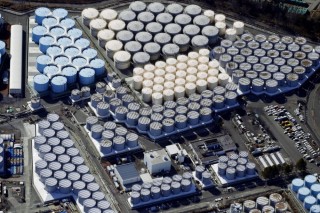Loading
Search
▼ Japan Seeks G-7 Endorsement On Discharge Of Fukushima Treated Water
- Category:Other
Japan will seek the endorsement of the Group of Seven nations for its plan to discharge treated water from its crippled nuclear power plant in Fukushima Prefecture into the Pacific Ocean when it hosts a meeting of the group's energy ministers in April, government sources said Wednesday.
he government is seeking to include a phrase, that says the G-7 members "welcome" its "transparent" approach toward the disposal of the treated water, in a document that will be released after the April 15-16 gathering in Sapporo, northern Japan, the sources said.
The move reflects the government's attempts to promote a narrative about the safety of the treated water, that contains low-level concentrations of tritium, as Japanese fishing communities remain opposed to the plan and neighboring countries China and South Korea have expressed concerns.
Japan is also negotiating with other members to include in the document that they "welcome the progress" made in the recycling of polluted soil, removed after decontamination work in areas affected by the nuclear disaster, that was triggered by a powerful earthquake and tsunami in 2011, according to the sources.
But some countries have been explicitly opposed to such statements, and there is a view within the Japanese government that it would be difficult for the G-7 to include the phrases in the final document, the sources said.
The government and the plant operator, Tokyo Electric Power Company Holdings Inc., aim to begin discharging the treated water around this spring or summer, with construction work underway to install an undersea tunnel and other necessary facilities.
While the government plans to provide financial support for affected fishing communities to help them continue operations and prevent reputational damage, Japan's fisheries cooperative associations have consistently opposed the discharge plans.
Following the nuclear disaster, vast quantities of water is still needed to continually cool the melted fuel and fuel debris at the Fukushima Daiichi power plant.
The water pumped into the plant for this purpose has mixed with groundwater and rainwater, accumulating in storage tanks at TEPCO's crippled complex after being treated with an advanced liquid processing system that removes most radionuclides.
As for the topsoil soil extracted in decontamination work in Fukushima, the government plans to dispose of it outside the prefecture. In order to reduce the amount of topsoil removed, the Environment Ministry plans to reuse the soil with other low-level radioactive materials in public works projects.
Although the ministry seeks to proceed with demonstration tests on the plan, it wishes to gain the public's understanding over the matter.
As this year's G-7 chair, Japan will host a three-day summit from May 19 in Hiroshima, where Prime Minister Fumio Kishida's constituency is located.
- February 22, 2023
- Comment (0)
- Trackback(0)


